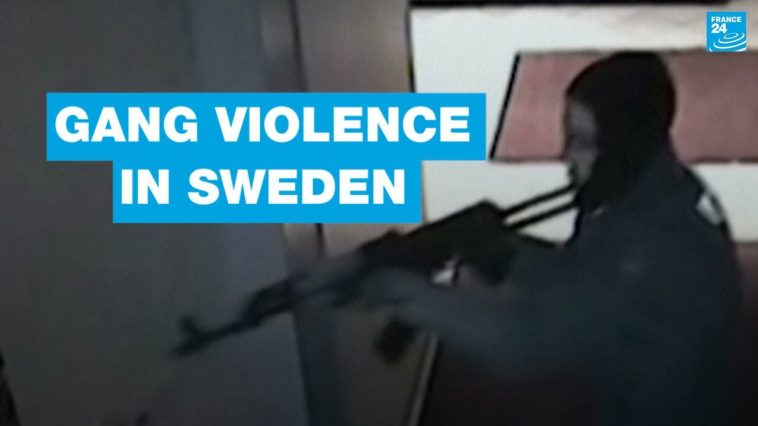In Sweden, there was once a collective understanding that the welfare and rights of children should invariably take precedence. However, this conviction has been severely tested over the last couple of decades due to a worrying increase in gang-related violence. Specifically, 2023 marked a particularly harrowing year, with a shocking number of 363 shootings resulting in 53 fatalities. As it stood by November this year, more than 100 bombings traceable to gang-related violence had already been reported. This distressing reality has pushed Sweden to a place of notoriety as one of the countries with the highest per capita rates of gun violence among European Union member states.
The escalation of such violence is largely attributable to the tactics employed by these gangs. Particularly disturbing is the trend of grooming and manipulation targeting children, some as young as 11, for recruitment as contract killers, according to police reports. In the Swedish penal system, young offenders aged between 15 and 17 are often directed towards government-operated residential homes as an alternative to prison.
These homes, intended to rehabilitate young offenders, have increasingly faced criticism for housing children with family issues alongside minors who have committed serious offences. The fundamental philosophy behind Sweden’s juvenile justice system was the belief that prolonged prison sentences could adversely affect both children and the wider society.
Historically in Sweden, juvenile delinquents were more likely to be allocated to residential homes than prisons. These facilities offered treatments designed to address addiction issues and mental health disorders. Confinement in prison for young offenders was an exceedingly rare event. Moreover, offenders aged between 18 to 21 typically benefited from sentence reductions, commonly known as ‘youth rebates’, and were offered placement in treatment homes.
However, as juvenile crime rates show alarming uptrends, the government has found it necessary to adjust its stance. There has been a decisive shift towards stricter sentencing for young offenders, and the abolition of a majority of youth rebates. This change in policy was reflected when two teenage boys were condemned to 10 and 12 years in prison respectively in August — marking some of the longest sentences ever handed down to juveniles in Sweden’s modern judicial history. Their sentencing followed their conviction in a case linked with a shooting incident that resulted in three fatalities and left two others, including a toddler of just two years, injured.
One particularly harrowing case involves Essa Kah Sallah, who had established a troublesome pattern of minor criminality from the tender age of 11. He subsequently rose to infamy as the founder of the Chosen Ones, a gang that has earned a reputation as one of the most dangerous in Sweden. Sallah himself has described gang life as an illusion of camaraderie; a false sense of fraternity devoid of genuine loyalty where meaningless violence and death are the only long-term guarantees.
Sallah broke away from the Chosen Ones four years ago, and has since dedicated his life to aiding others who seek to extricate themselves from gang affiliations. The rapid rise in gang violence has led many to point accusatory fingers towards Sweden’s erstwhile liberal refugee policies. This has precipitated a tighter control on immigration.
The more extreme elements on the political spectrum, particularly those on the far right, have suggested that a forceful repatriation strategy targeting foreigners, especially Muslims, could be the ultimate solution. The surge in violence reached a tragic peak earlier this year, when a vicious shooting led to loss of lives. Following the incident, Prime Minister Ulf Kristersson vehemently criticized the ‘brutish, almost beast-like mindset’, he perceived among the group of young individuals implicated in the crime.


